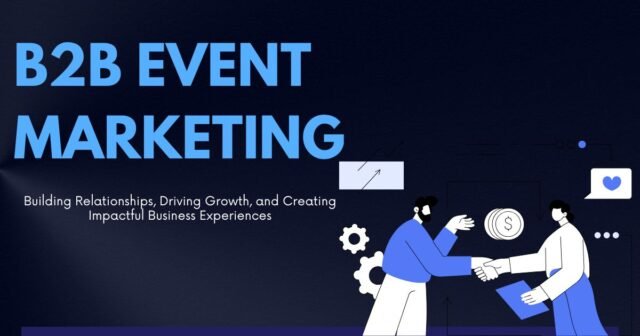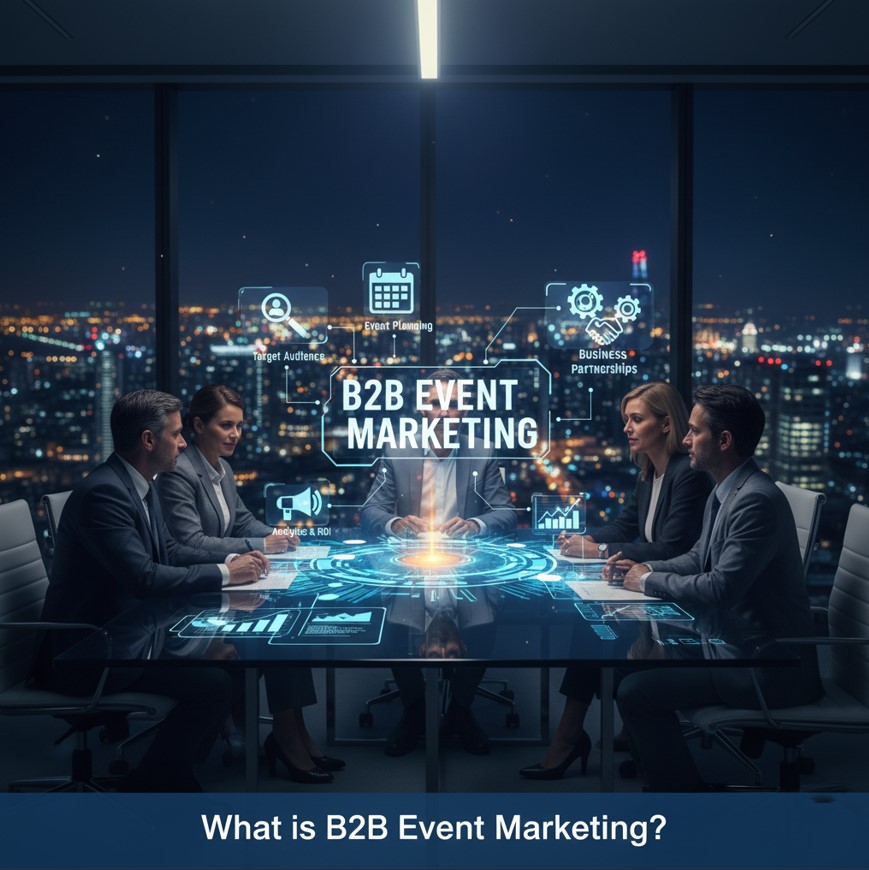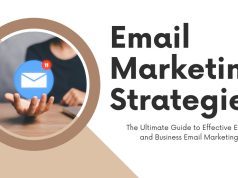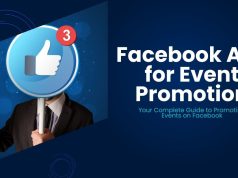B2B event marketing has emerged as a critical strategy for companies that are looking to form meaningful relationships and accelerate growth. Whether that’s a product launch, a workshop, or a trade show, these events provide a unique opportunity to speak directly to your audience, demonstrate knowledge in an industry, and build long-lasting customer relationships.
But what does it take to ensure that your B2B event doesn’t get lost in a crowded marketplace? This definitive guide will dissect everything you need to know about the world of B2B event marketing and take you through actionable steps for planning, promoting, and measuring the success of your event.
What is B2B Event Marketing?
Business-to-business event marketing is the practice of businesses marketing their events to other businesses rather than to the general public. Emphasis is typically placed on networking, educating prospective buyers, and establishing rapport within an industry.
Types of B2B Events:
- Conferences: Conferences are generally big affairs that are meant to educate, network, and hopefully enthuse.
- Webinars: Production of virtual events for industry breakage, product updates, or training.
- Trade Shows: Specific events where products or services are presented to a specific audience.
- Workshops: Smaller-scale events designed to hone in on specific skills with a hands-on learning approach.
Each event type has its specific purpose, but the ultimate goal is the same: driving growth and lasting relationships for business.
Advantages of B2B Event Marketing
Why B2B event marketing is important for businesses to invest in? Here are some of the key benefits it provides.
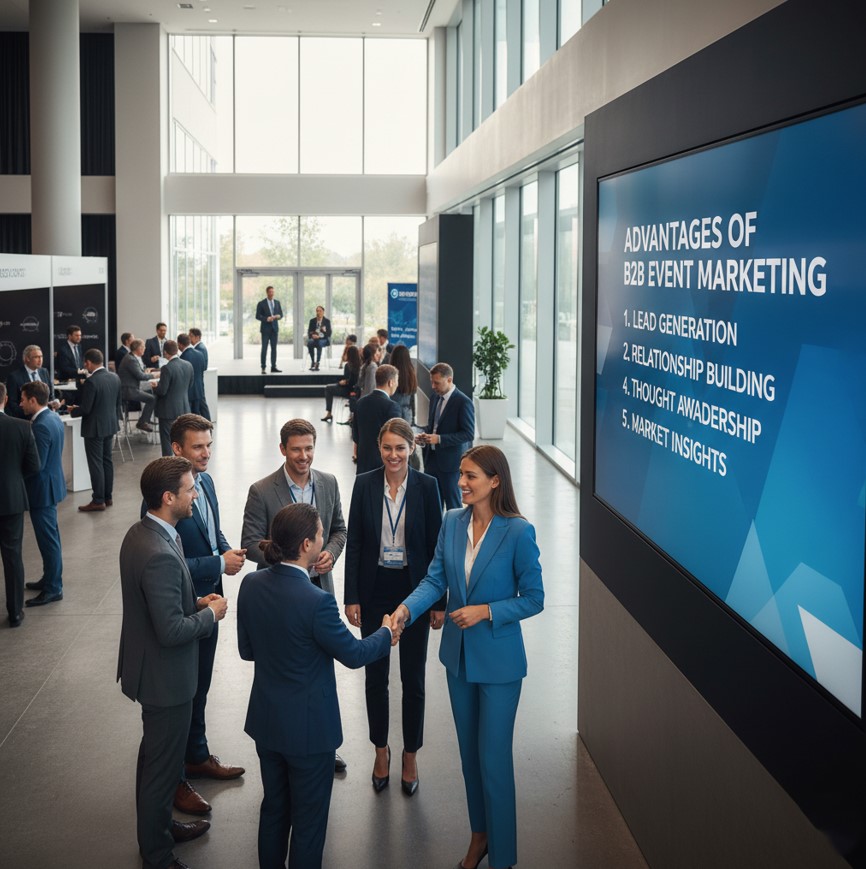
Developing a more robust relationship
One-on-one interactions (or online substitutes for them) are essential for building trust and comprehension. Events are your opportunity to take your business relationships to the next level with prospects, customers, partners , and stakeholders.
Showcasing Expertise
With B2B events, it’s easier to establish your company as a thought leader in your industry. When you host panels, deliver keynote speeches, or demonstrate new products, you show yourself as an authority figure.
Generating Leads
For qualified leads, B2B events are really a gold mine. Be it attendee sign-ups, networking sessions, or post-event follow-up, you’re being exposed to an audience that actively seeks what you have.
Enhancing Brand Visibility
Events get buzz on their own, especially with some promotion behind them. They cement your place in the industry, grab the media’s attention, and thrill your audience.
Planning Your B2B Event
No, it is PLAN. The base of every successful event marketing strategy is planning. Here’s a list of important steps to check off if you want your event to flow smoothly.
Define Clear Objectives
Ask yourself:
- Describe the objectives of this event. Lead generation? Product demonstration? Brand awareness?
- Who is the target audience? Who is deciding, who is the expert, possible buyer?
Once you have these parameters set at the beginning, every other decision will be based on them.
Set a Realistic Budget
Budgeting is crucial. Consider expenses like venue hire, technology, promotion materials, speakers’ fees, and the like. Have a margin for surprise costs.
Choose the Right Format
Determine whether an in-person, online, or combination event is most appropriate for your audience’s interests and your goals. Virtual meetings are cheaper, but real-world meetups result in stronger connections.
Create a Detailed Timeline
Early birds always plan out every stage, from when you send invitations until you chase up after the event. A proper timeline keeps you on schedule and sticking to the deadlines.
Promoting Your B2B Event
A typo in your promotion material might kill even the best thought-out event. Here’s how to grow your event to be as large as possible.
Leverage Social Media
B2B Event Marketing on Platforms such as LinkedIn . Social networks like LinkedIn are the perfect place to promote your B2B events. Post, hashtag, and encourage your network to get your event out there. (Also, think about whether to run paid social ads against your preferred attendees!)
Email Marketing
An effective email campaign can help promote event registrations. Go out of your way to personalize your emails, prominently feature your main talking points, and create a strong call-to-action (the last step your subscriber should take in your email like “Register Now” or “Save Your Spot”).
Collaborate with Industry Influencers
Work with industry thought leaders to spread the word about your event. Their approval helps to establish credibility and extend your reach.
Create a Landing Page
Your event’s destination page is the online center of your event. Ensure it includes:
- A compelling headline
- Event information (program, speakers, location, etc.)
- A CTA Clear Registration Form 4.
Measuring Success and ROI
After the event is over, the impact needs to be measured. Here’s how to assess whether it’s working best.

Monitor Registrants and Attendees
Compare the actual and registered attendees to your expected amounts. Keep tabs on your audience demographics to see how large your reach is.
Collect Feedback
You might also get useful feedback from post-event surveys about what went well and what could be improved. Inquire about the relevance of sessions, all around speaker performance, and experience.
Analyze Lead Generation
How many good leads did you bring back? An apparatus like a CRM system might be able to help monitor how attendees move through your sales funnel after the event.
Assess Revenue Impact
Determine ROI for revenue-focused events. Compare the total cost of your special event to the revenue or opportunities it generated.
The Future of B2B Events
B2B event marketing is changing fast. Businesses also seem to be heading in favor of hybrid and immersive digital experiences, such as virtual reality stands or interactive webinars, as technology advances.
Success lies in adaptability. Keep innovating ahead of trends, constantly evaluate your strategy, and listen to what the audience wants to maintain your events’ freshness and impact.
B2B event marketing is more than just hosting a get-together; it’s experience-driving opportunities to reach and authentically engage your audience.
If you’re exploring how economic systems operate, this article on ownership of the factors of production in a market economy breaks down key roles and responsibilities

